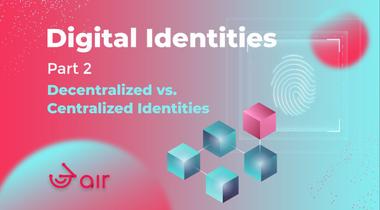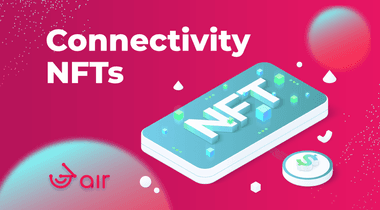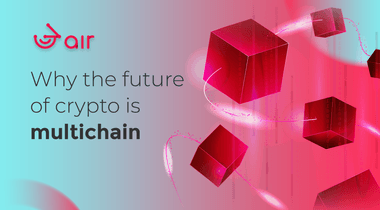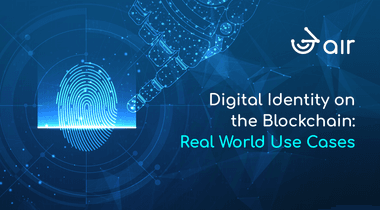Decentralized vs. Centralized Identities
Now we need to talk about control. This is what decentralization is all about. Currently, all our official identifications are handled by governments, meaning they are fully centralized. For the most part this is a black box you cannot oversee and if a government wants you wiped out, they have the power to do that. Sure, we can argue if that’s legal or not but… let’s not go down that rabbit hole.
You might trust your government and not care about decentralization, but it’s always better to prevent bad things from happening than trying to solve the consequences after the fact. You also don’t try to get in a car accident because you trust your doctors will be able to fix you.
Decentralization is about taking away the power over your identity from one central authority and putting it back into your hands.
The problem with such an approach: if anyone can create their own identity, what is the point of having one? It’s a about trusting the issuer, the third party that vouches for the person we are interacting with.
Even if we develop an identity system that works in a decentralized way, we still need a centralized issuer of our credentials that every one else will accept. And we can not take away the control from the governments about issuing and revoking information about citizenships, residential statuses or similar.
In such cases, even if an identity system might be decentralized, until the credentials are also decentralized we are still at the mercy of one central authority.
This then becomes more a philosophical question about social and governmental systems.
On the other hand, new technologies offer new ways in defining old ideas. What really is an identity? What purpose does it serve? In a sense, it’s about distinguishing us from another person and doing this consistently. It is about using the advantages of proving you own a house or a car, but also about taking the responsibility if you try to steal or engage in other socially or morally questionable actions. IDs are about preventing crime. If we would live in a perfect world where everyone was truthful, we would not need IDs.
As of now the issue of true ID decentralization has not yet been solved, but there are promising developments in providing new ways of having truthful data without issuing it by centralized authorities. For instance, you could issue your own credentials and have them signed off by multiple reputable parties. The power lies in the numbers. Social pressure can be and will be a major driving force of the future. New technologies are making it easier for multiple users to collaborate and therefore decentralize systems that previously could not be decentralized.
This will then bring about truly decentralized identities.










